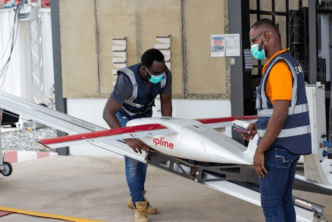In recent news, Anduril Industries, a leading player in the defense tech sector, announced plans to potentially open a factory in the U.K. This startup, now valued at $14 billion, secured a significant $40 million contract from the U.K. government to supply drones for Ukraine amidst the ongoing Russia-Ukraine conflict, which has also contributed to continued instability in the Middle East. In similar fashion, Epirus, a Los Angeles-based unicorn is plotting to reshape the defense tech landscape.
However, despite these geopolitical tensions, investors in Europe have yet to follow the example of their U.S. counterparts by pouring millions into defense tech ventures. While defense tech investments in Europe reached an all-time high in 2024, with nearly $626 million funneled into venture-backed startups, it still represents less than one-fifth of the nearly $3.2 billion invested globally in this sector. U.S.-based startups alone secured $2.5 billion in defense tech funding.
Europe’s Slower Investment Pace
Europe, which accounts for approximately one-sixth of the global venture capital market, has seen most of its defense tech investments concentrated in one major deal. Helsinki-based AI company Helsing, which develops software to enhance the capabilities of weapons systems in drones and fighter jets, raised around $489 million in funding in July 2024, valuing the company at $5.4 billion. This marks the largest European defense tech deal, but it is an outlier.
In comparison, U.S. defense tech companies have attracted significantly larger investments. In 2024, 67 funding rounds for U.S.-based defense tech startups raised a total of $2.5 billion, including 14 rounds worth more than $100 million. Notable deals included Anduril Industries’ impressive $1.5 billion Series F round and Saronic’s $175 million Series B round. By contrast, Europe’s largest defense tech rounds last year were much smaller: The Tekever Group raised $75 million, and FibreCoat secured $21 million.
The U.S. Leads the Charge
U.S-based defense tech startups have continued to dominate the investment landscape this year. Already, in 2025, U.S. companies have raised $1.5 billion across 15 deals. Europe, however, has seen a significantly slower start with just over $1 million raised across a few deals.
Despite the disparity in investment, there is potential for Europe to catch up. The NATO Innovation Fund, established last year, has made its first investments and is actively supporting startups in both defense and civilian tech, as well as those focused on security and resilience. This could signal a shift in Europe’s focus toward defense tech, particularly as global political dynamics evolve.
A Long Road Ahead for Europe
While there are promising signs, Europe still has a long way to go to match the U.S. in defense tech investments. U.S. startups closed nearly three times as many funding rounds last year compared to their European counterparts: 67 rounds in the U.S. versus 23 in Europe. To reach a comparable level of investment, Europe must significantly increase both the number of deals and the total dollars committed to the sector.













